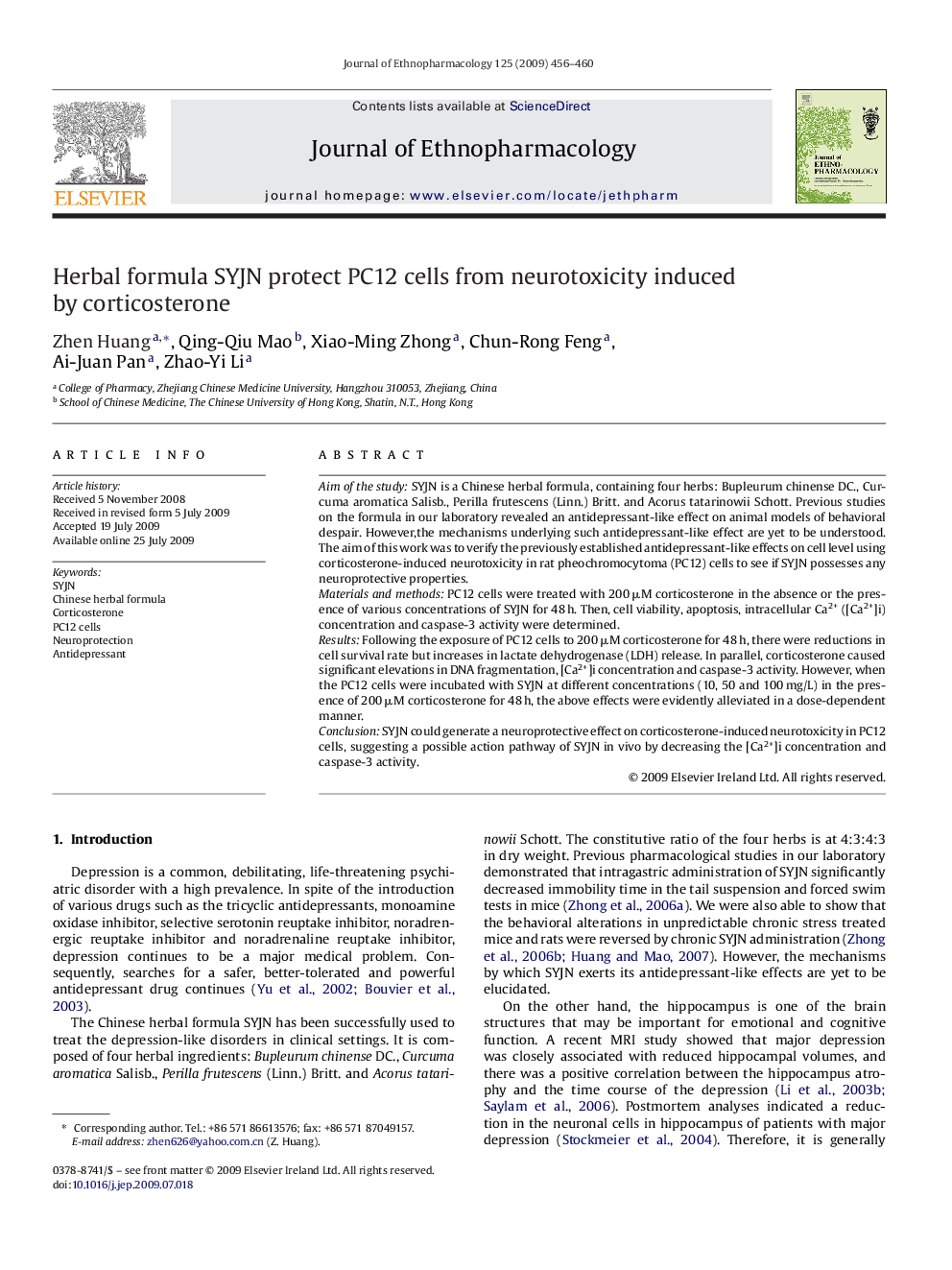| کد مقاله | کد نشریه | سال انتشار | مقاله انگلیسی | نسخه تمام متن |
|---|---|---|---|---|
| 2546822 | 1124037 | 2009 | 5 صفحه PDF | دانلود رایگان |

Aim of the studySYJN is a Chinese herbal formula, containing four herbs: Bupleurum chinense DC., Curcuma aromatica Salisb., Perilla frutescens (Linn.) Britt. and Acorus tatarinowii Schott. Previous studies on the formula in our laboratory revealed an antidepressant-like effect on animal models of behavioral despair. However,the mechanisms underlying such antidepressant-like effect are yet to be understood. The aim of this work was to verify the previously established antidepressant-like effects on cell level using corticosterone-induced neurotoxicity in rat pheochromocytoma (PC12) cells to see if SYJN possesses any neuroprotective properties.Materials and methodsPC12 cells were treated with 200 μM corticosterone in the absence or the presence of various concentrations of SYJN for 48 h. Then, cell viability, apoptosis, intracellular Ca2+ ([Ca2+]i) concentration and caspase-3 activity were determined.ResultsFollowing the exposure of PC12 cells to 200 μM corticosterone for 48 h, there were reductions in cell survival rate but increases in lactate dehydrogenase (LDH) release. In parallel, corticosterone caused significant elevations in DNA fragmentation, [Ca2+]i concentration and caspase-3 activity. However, when the PC12 cells were incubated with SYJN at different concentrations (10, 50 and 100 mg/L) in the presence of 200 μM corticosterone for 48 h, the above effects were evidently alleviated in a dose-dependent manner.ConclusionSYJN could generate a neuroprotective effect on corticosterone-induced neurotoxicity in PC12 cells, suggesting a possible action pathway of SYJN in vivo by decreasing the [Ca2+]i concentration and caspase-3 activity.
Journal: Journal of Ethnopharmacology - Volume 125, Issue 3, 25 September 2009, Pages 456–460